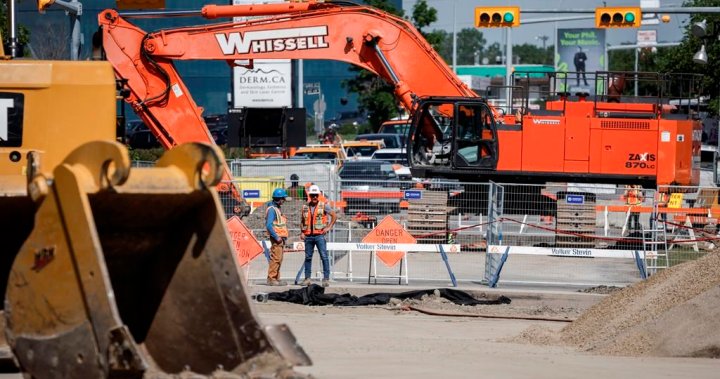A recent report from the Canadian Federation of Independent Business (CFIB) has revealed that nearly 70 per cent of small businesses in Canada have experienced disruptions from construction projects within the past five years. These disruptions have led to financial losses, with businesses reporting an average revenue loss of 22 per cent during the biggest construction period they faced. Issues such as heavy traffic, noise, dust, and debris have made it difficult for staff and customers to access storefronts, resulting in lost sales. This poses a significant challenge for small business owners, especially when lack of demand is already a concern for many businesses.
Shoppers’ decreased spending due to the higher cost of living has compounded the challenges faced by small businesses struggling with construction outside their doors. While small businesses understand the importance of infrastructure upgrades, many are unable to reap the benefits of completed projects as they fold under the financial burden caused by construction disruptions. In addition to revenue losses, businesses have had to spend an average of $10,000 on expenses such as repairs and cleaning when construction takes over their street. Some business owners have had to dip into personal savings or take on debt to cover these costs.
Construction-related disruptions have taken an emotional toll on small business owners, especially when there is no clear end date in sight. The report revealed that 23 per cent of business owners experienced significant stress due to construction. On average, these disruptions lasted for 508 days. CFIB has recommended that all levels of government establish comprehensive construction mitigation plans to support small businesses during construction projects. This includes delineating responsibilities, ensuring cooperation across government levels, and providing clear points of contact and communication channels for affected businesses.
Major construction projects can have a significant impact on small businesses, leading some to contemplate closing or relocating due to the disruptions. To address this issue, CFIB has suggested that governments establish compensation policies for businesses impacted by construction projects. The report found that a vast majority of small businesses, around 68 per cent, believe they should be compensated when their shop is disrupted by a major construction project. Cities like Calgary and Montreal have already implemented policies to mitigate construction effects on small businesses, while Toronto has grant programs in place to support affected businesses.
While there are measures that businesses can take to alleviate the impact of construction disruptions, such as putting up signs, providing alternative parking options, and maximizing their online presence, these are considered “Band-Aid solutions” by CFIB. The most impactful step that business owners can take is to raise their concerns with the relevant government authority overseeing the construction project and advocate for compensation policies. CFIB emphasizes the importance of comprehensive construction mitigation plans from governments to address the challenges faced by small businesses during construction projects. By working together and implementing effective strategies, governments and businesses can navigate construction disruptions and ensure the continued success of small businesses in Canada.


